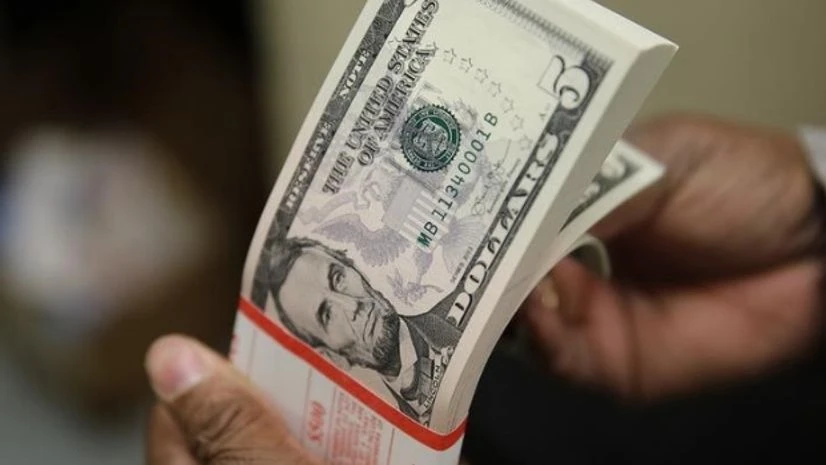The US dollar sank to its lowest in more than a year against key world currencies on Friday as investors assessed comments from the European Central Bank (ECB) and obstacles to US President Donald Trump's domestic agenda, while world stock markets were poised to snap a 10-session streak of gains.
Gains in the yen, gold and US Treasuries pointed to moves into safe-haven assets compared with stocks that are considered riskier. Oil prices sank more than 1 per cent.
The euro built on sharp gains from a day earlier, rising to near two-year highs against the dollar and undermining European stocks, with Germany's DAX equity index down 1.7 per cent.
ECB President Mario Draghi said on Thursday financing conditions remained broadly supportive, and that the euro's appreciation had "received some attention." However, he did not cite that as a problem nor did he directly try to talk the currency down.
"The fact that Draghi didn't necessarily argue too much against the strength of the euro... certainly gave the greenlight for individuals to want to own the currency again or actually add to their positions," said Dean Popplewell, chief currency strategist at Oanda in Toronto.
MSCI's gauge of stocks across the globe shed 0.32 per cent, falling after 10 days of gains.
US stock indexes opened lower, pulling back from record high levels reached earlier in the week.
More From This Section
The Dow Jones Industrial Average fell 67.58 points, or 0.31 per cent, to 21,544.2, the S&P 500 lost 5.36 points, or 0.22 per cent, to 2,468.09 and the Nasdaq Composite dropped 14.87 points, or 0.23 per cent, to 6,375.13.
General Electric shares dropped 3.2 per cent after the industrial conglomerate's profit report.
"The market is pausing after another stellar run to record high levels, as people take modest profits off the table and cut back on risk just a little bit going into the weekend," said Randy Frederick, vice president of trading and derivatives for Charles Schwab in Austin, Texas.
Next week, investors will be focusing on a meeting of Federal Reserve policymakers, the release of second-quarter economic growth data, as well as a flood of corporate results.
Headwinds
In Europe, the pan-European FTSEurofirst 300 index lost 1.08 per cent.
"The strength of the euro does appear to be acting as a bit of a headwind for European stocks," said CMC Markets analyst Michael Hewson.
In currencies, the dollar index fell 0.25 per cent, falling to its lowest point since June 2016.
The euro was up 0.18 per cent to $1.165. The Japanese yen strengthened 0.63 per cent versus the greenback at 111.22 per dollar.
Aside from the ECB comments, investors were also assessing whether Trump's recent legislative setbacks and developments involving a probe into Russian meddling in the 2016 US general election were threatening his domestic plans for tax cuts and infrastructure spending.
"Compounding the (weaker dollar) move is this latest news on the political front in the US about the Russia investigation expanding to Trump's business affairs," said Alvise Marino, FX strategist at Credit Suisse in New York. "This is on top of the fact that Senate has not been able to pass anything meaningful on the healthcare front."
US Treasury yields fell in step with European yields as the euro strengthened against the dollar, raising doubts whether the ECB would scale back its bond purchases later in 2017.
Benchmark 10-year notes last rose 8/32 in price to yield 2.2393 per cent, from 2.266 per cent late on Thursday.
Oil prices fell after a consultancy report forecast a rise in the Organisation of the Petroleum Exporting Countries (Opec) production for July despite the group's pledge to curb output, reigniting concerns the market will stay awash with crude.
US crude fell 1.45 per cent to $46.24 per barrel and Brent was last at $48.67, down 1.28 per cent on the day.
Spot gold added 0.5 per cent to $1,250.53 an ounce, as the weaker dollar made bullion cheaper for holders of other currencies.

)
